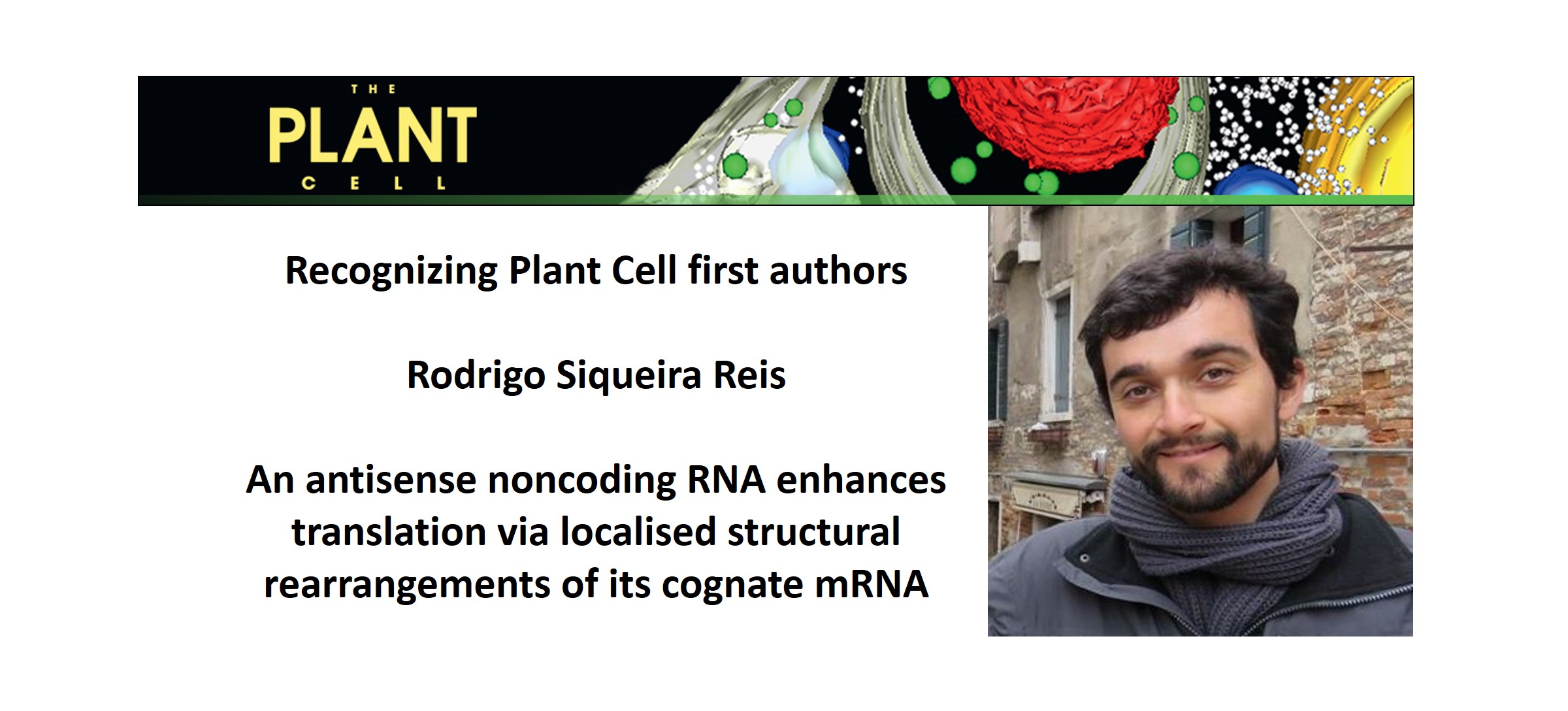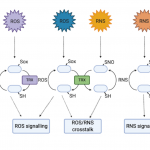Recognizing Plant Cell authors: Rodrigo Siqueira Reis
 Rodrigo Siqueira Reis, first author of An antisense noncoding RNA enhances translation via localised structural rearrangements of its cognate mRNA
Rodrigo Siqueira Reis, first author of An antisense noncoding RNA enhances translation via localised structural rearrangements of its cognate mRNA
Current Position: Postdoc at the University of Lausanne, Switzerland
Education: PhD in Molecular Biology (University of Sydney, Australia), MSc in Biochemistry (UFRJ, Brazil) and BSc in Biochemistry (UFV, Brazil)
Non-scientific Interests: Football, camping, podcasts, movies, books
Brief bio: My path to become a plant biologist started in my PhD, when I did my thesis in a lab that was all about gene silencing and miRNA regulation. Later, when I was looking for a postdoc opportunity, I came across a position to work on a very unexpected project related to translation enhancement of mRNAs by expression of antisense transcripts. This was in stark contrast with all I’ve seen during my PhD, because sense-antisense transcripts were thought to form substrates for gene silencing; by no means thought to be involved in enhancement of translation. I took the challenge and it quickly became apparent that co-expression of sense and antisense transcripts are very unlikely to trigger silencing. I think that that was just a misconception that is slowly weakening in face of newer evidence from modern high-throughput sequencing (i.e. strand-specific). In any case, we didn’t know what was preventing silencing from sense-antisense transcript interact. In this current work, we present a mechanistic explanation to how the rice PHO1.2 mRNA has its translation enhanced through interaction with an antisense transcript (aka cis-natural antisense transcript; cis-NAT). This mechanism involves subtle and specific RNA-RNA interactions, and we believe that this might explain how they evade silencing to promote translation enhancement. That is, these two RNAs form secondary structures that are stable enough not to be disrupted for extensive base pairing between sense-antisense complementary nucleotides. Whether this is a general explanation remains to be verified. On the personal side, during my postdoc, our now 3-yo son was born and this has been a great daily joy, helping weather the difficult times in the lab and adding a whole new filter to life.



